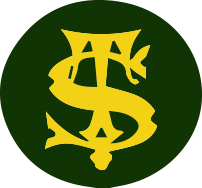Assessment
Assessment for Learning
At St Thomas of Canterbury RC Primary School we believe that in order for all our children to be successful learners then Assessment for Learning must be at the heart of everything we do. Formative assessment is used in every subject, in every lesson, to identify and address the children's misconceptions, as well as identify particular areas which require further work. This includes the use of questioning and knowledge quizzing during lesson time.
Summative Assessment
Reading, Writing, SPaG, Maths
Here at St Thomas of Canterbury, we have a robust assessment and tracking system, which reflects the National Curriculum 2014, and uses a carefully planned combination of formative and summative assessment. We have a system based on end of year expectations across all year groups.
At St Thomas of Canterbury, we use STAT (School Tracking & Assessment Tool) Sheffield for Reading, Writing, SPaG (Spelling, Punctuation and Grammar) and Mathematics to track children's progress, without levels. These are available using the links below. For each year group, there is a set of Age Related Expectations (ARE’s) for a child to meet. These are a set of statements which clearly outline the skills and knowledge that a child should achieve by the end of a particular year.
Assessments are carried out termly, using the Sheffield STAT materials:
- Assessment Point 1 - Autumn 2 - after 12 weeks teaching – Children at expected standard should be assessed as ENTERING
- Assessment Point 2 - Spring 2 – after 24 weeks teaching – Children at expected standard should be assessed as DEVELOPING
- Assessment Point 3 - Summer 2 – after 36 weeks teaching – Children at expected standard should be assessed as SECURE
NB – Therefore expected progress is 3 steps per year – ENTERING, DEVELOPING, SECURE in any relevant year group.
At Assessment Point 3, NFER (National Foundation for Educational Research) tests are also used, alongside teacher assessments - from Year 3 to Year 5 - in Reading, Maths and SPaG, to support teacher judgements. From this, teachers report as to whether a child is ‘Below’, ‘Entering’, ‘Developing ‘ or ‘Secure’ within their year group in Reading, Writing, Maths and SPaG.
‘Below’ means that a child is working at least one year below the expectation for their age.
‘Entering’ means that a child is working at a standard expected at the start of the year they are now about to finish.
‘Developing’ means that a child is still working within the expectations for their year group.
‘Secure’ means they have secured all or most of the objectives for their year group. This includes ‘above average’ pupils.
Following termly teacher assessments, standards meetings are held, where class teachers meet with Mr Deane to look closely at the progress of individual pupils. Provision for children that are not on track is discussed, in order to address gaps in learning.
Assessment in the wider curriculum
For science and foundation subjects, children complete summative retention quizzes, which informs teachers of whether children have remembered key information in each unit of work. These quizzes were created by our staff and are therefore tailored to encapsulate our curriculum content. Once a unit of work has been taught, all children complete the quiz at the start of the next unit of work for that particular subject- History/Geography/Art etc termly. Science/French half termly. Quiz outcomes are used to teach gaps during subsequent lessons, through our Flashback Fours. They are also used to inform teacher assessments for individual pupils at Assessment Point 3. Each subject area clearly sets out the knowledge/skills children need to be able to demonstrate to be assessed as working at the expected standard, in each year group.
Assessment in the Early Years Foundation Stage (EYFS)
Children in EYFS are assessed against the EYFS Profile. Each child's level of development is assessed against seventeen Early Learning Goals (ELGs) across 7 areas of learning. During the Nursery and Reception years observational evidence, photographs, annotated pieces of work and learning journeys will be used to capture children's learning and inform the planning of developmentally appropriate next steps. At the end of the Reception year, children are reported as to whether they are 'emerging' or 'expected' for each ELG and whether they have achieved a good level of development.
Teachers use their professional judgement to make EYFS Profile assessments, using their knowledge and understanding of what a child knows, understands, and can do.
The seventeen Early Learning Goals can be found by selecting the document below.
